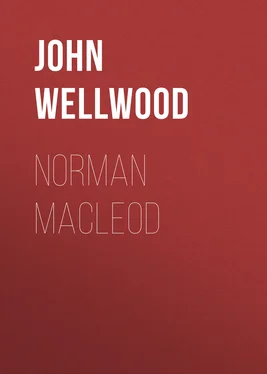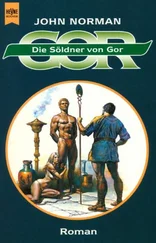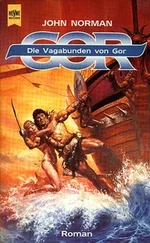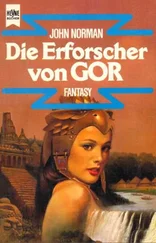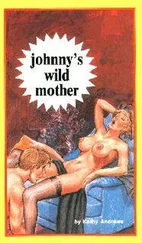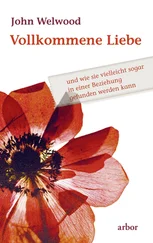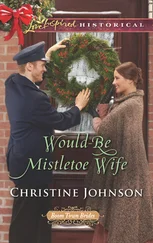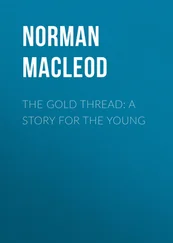John Wellwood - Norman Macleod
Здесь есть возможность читать онлайн «John Wellwood - Norman Macleod» — ознакомительный отрывок электронной книги совершенно бесплатно, а после прочтения отрывка купить полную версию. В некоторых случаях можно слушать аудио, скачать через торрент в формате fb2 и присутствует краткое содержание. Жанр: foreign_prose, foreign_religion, Философия, foreign_psychology, foreign_antique, на английском языке. Описание произведения, (предисловие) а так же отзывы посетителей доступны на портале библиотеки ЛибКат.
- Название:Norman Macleod
- Автор:
- Жанр:
- Год:неизвестен
- ISBN:нет данных
- Рейтинг книги:4 / 5. Голосов: 1
-
Избранное:Добавить в избранное
- Отзывы:
-
Ваша оценка:
- 80
- 1
- 2
- 3
- 4
- 5
Norman Macleod: краткое содержание, описание и аннотация
Предлагаем к чтению аннотацию, описание, краткое содержание или предисловие (зависит от того, что написал сам автор книги «Norman Macleod»). Если вы не нашли необходимую информацию о книге — напишите в комментариях, мы постараемся отыскать её.
Norman Macleod — читать онлайн ознакомительный отрывок
Ниже представлен текст книги, разбитый по страницам. Система сохранения места последней прочитанной страницы, позволяет с удобством читать онлайн бесплатно книгу «Norman Macleod», без необходимости каждый раз заново искать на чём Вы остановились. Поставьте закладку, и сможете в любой момент перейти на страницу, на которой закончили чтение.
Интервал:
Закладка:
John Wellwood
Norman Macleod
INTRODUCTION
If any modern minister has a place, though it were the least, among the worthies of his nation, he must have been a surprising personality. When Scottish life was based on Calvinism, and there was a Stuart deforming the Kirk at the sword’s point, a preacher might rise to be a leader of the people, if not a virtual ruler in the kingdom. From Knox to Carstairs the line of famous Scots (such as they are) is black with Geneva gowns. But for two hundred years the Protestant spirit has gone all to democracy and the march of intellect, while the clergy have stood by the vacant symbol, exiled—
‘From the dragon-warder’d fountains
Where the springs of knowledge are,
From the watchers on the mountains
And the bright and morning star.’
So the Church has come down in the world. Her affairs are her own, and subject to journalistic irony; with few exceptions her leaders, for all the noise they may make in their day and generation, have only to die to be forgotten. One calls to mind certain men who were not in holy orders, mere sages or poets, and knows them for the real teachers of their times. In Norman Macleod the hero as priest reappears, but at some cost to the clerical tradition. Making little of dogma, and less of rites, he went deep down into the common heart for his ground of appeal, and on his lips love, divine and human, was a tale to move the philosopher and win the crowd. His work in the world was to make men good after the pattern of Jesus, and to that work he brought a burning belief, a boundless sympathy, and rare oratorical and literary gifts. One in the throng at the funeral of this great minister was heard to say, ‘There goes Norman Macleod. If he had done no more than what he did for my soul, he would shine as the stars for ever.’ And the like might have been confessed by thousands; nay, many who never heard his voice nor saw his face were better for the rumour of such a man. His name went from the Church to the nation, and over all English-speaking lands; and with that of Chalmers has endured.
CHAPTER I
1812-1837
DESCENT—BOYHOOD—STUDENT YEARS
Nothing astonished Dr. Johnson so much, when he was roving in the Hebrides, as to find men who lived in huts and quoted Latin. These were the ‘gentlemen tacksmen,’ and no more remarkable tenantry was ever seen on any soil. What they did for agriculture I cannot say; as much, perhaps, as their destroyers, who made a solitude and called it sheep: but they had bread to eat and raiment to put on (though they might sometimes sleep with their feet in the mire), and their praise is that they sent forth a splendid race to the fields of honour. Their sons, scant of cash, yet with the air of nobles, thronged the colleges, nor was there any career in which laurels were not won by men from the mountains and the isles. Picture some judge or general gazing at the ruins of a shieling, and then sneer at the old Highland tacksmen. From this class Norman Macleod was descended. His great-grandfather, the earliest ancestor of whom we have any record, lived in Skye, at Swordale, near Dunvegan Castle, about the middle of last century. The tradition is that he was a good man and the first in his neighbourhood to introduce family worship. His dearest wish was to see his first-born a minister of the Church of Scotland. The estate of the Laird of Macleod was then a sort of feudal Utopia, in which the ruling idea was the advancement of the youth. There was a conspiracy of education. After the schoolmaster (a good hand at the classics for certain) came a college-bred tutor, who was maintained by a number of families in common. Then the Chief made interest at the University for his lads, and in the vacations entertained the professors at his castle, where they met their students as fellow-guests. No wonder so many notable lines sprang from Skye, if, as was said, these students were all gentlemen.
Norman Macleod, Swordale’s eldest son, having finished his studies for the Church, acted for some time as tutor in his native district. Thus he was at home in September 1773 , and, being a favourite at Dunvegan—you understand? Yes, he met Dr. Johnson. ‘And he used to tell, with great glee, how he found him alone in the drawing-room before dinner, poring over some volume on the sofa, and how the doctor, before rising to greet him kindly, dashed to the ground the volume he had been reading, exclaiming in a loud and angry voice, “The author is an ass!”’ In the following year this young man was preferred to a parish which to name is to spring all the romance of the Highlands,— Morven . Upwards of six feet in height, and of a noble countenance, the stranger from Skye would be welcome as at least ‘a pretty man’; but was there none, in that land of seers, to foretell how this minister should reign in Morven, and his son after him, each for half a century or more, and how he should be the founder of a clerical dynasty that would last for ever? Norman the First presents a rare figure in an age in which the clergy were noted for anything but ecclesiastical zeal. He had all the culture that was going, but did not prefer Horace to David, nor Virgil to Isaiah, and could hate fanaticism without reducing religion to a cauld clash of morality. He was the ideal of a Highland minister, daring the stormy strait and the misty mountain, swaying the wild Celtic heart by tender or fiery appeals, and drawing the poor and the troubled to his door from the remotest glens. The living was of the smallest, but he acted upon the precept, ‘Do what you can, and leave the rest to God.’ He had a large family of sons and daughters, and there were various workers and dependents settled on the glebe. So at Fiunary, above the rocky shore of the Sound of Mull (not far from the inn where the Lad with the Silver Button had to go from the fireside to his bed, wading over the shoes), there was a little community by itself, living a beautiful and wholesome life. The glebe was a scene of cheerful industry, and, labour done, the bagpipes would be skirling. In the manse there might be a tutor and a governess, but the daughters were their own dressmakers, and the sons worked in their father’s fields. But the chief part of their education was play; they all rejoiced in the open air, and Morven entered into their blood. The boys went fishing and sailing, hunted the wild cat and the otter, and roamed the heather in quest of game. By the winter hearth what singing of Gaelic songs! The minister himself played the fiddle, and liked to set his children dancing of a night. In this family religion was no formal lesson: it was the atmosphere they breathed.
One summer day in the closing year of last century, General Macleod, chief of the clan, visited the manse of Fiunary, and took away with him to Dunvegan his young namesake, the minister’s eldest son, Norman the Second. Nothing could have been more delightful to the boy, who cared little for study, preferring any day the seas and the hills, and was already at sixteen a Highland patriot, with his head full of the legends of that old castle in the shadow of which his ancestors were born. The reception by the clan, especially the piping of a Macrimmon, was never to be forgotten. During his stay at Dunvegan, where he was treated like a son, he met many chiefs, some of them distinguished soldiers home from the wars. So he returned to Morven more a Highlander than ever, and with a double measure of the martial spirit that was then abroad in his native county. He joined the Argyllshire Fencibles, and rose to the rank of corporal! If this is an anti-climax, suppose that he was moved less by military ardour than the love of manly exercises. At all events it was as an athlete that he chiefly excelled in his youth.
Читать дальшеИнтервал:
Закладка:
Похожие книги на «Norman Macleod»
Представляем Вашему вниманию похожие книги на «Norman Macleod» списком для выбора. Мы отобрали схожую по названию и смыслу литературу в надежде предоставить читателям больше вариантов отыскать новые, интересные, ещё непрочитанные произведения.
Обсуждение, отзывы о книге «Norman Macleod» и просто собственные мнения читателей. Оставьте ваши комментарии, напишите, что Вы думаете о произведении, его смысле или главных героях. Укажите что конкретно понравилось, а что нет, и почему Вы так считаете.
